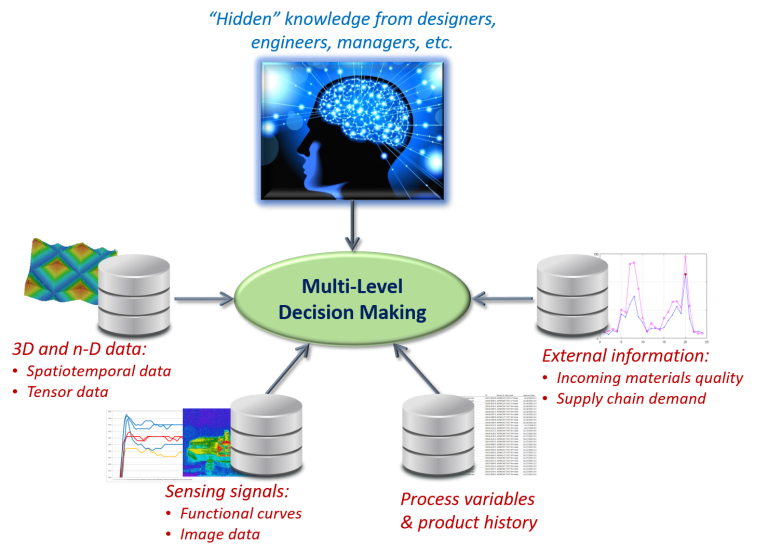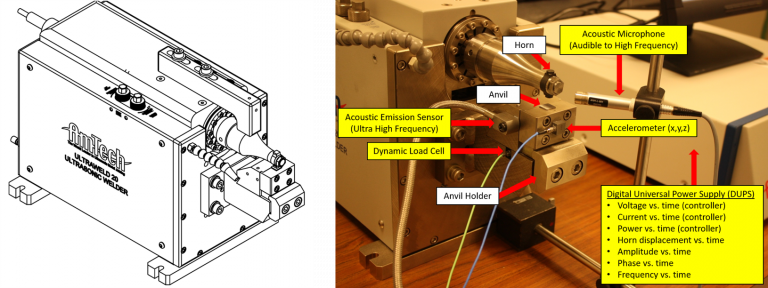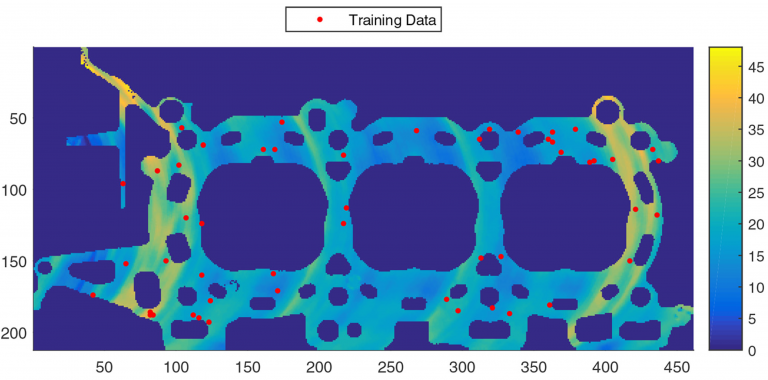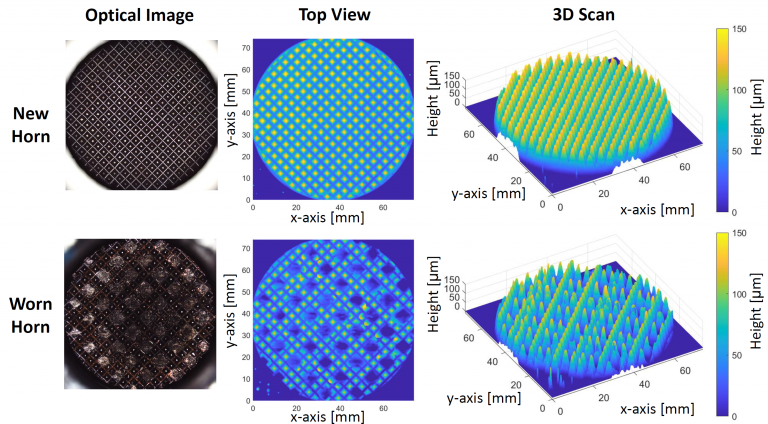Smart manufacturing (or Industry 4.0) is believed to be the next-generation production paradigm and has received extensive attention from industry, academia, and policy-makers all around the world. The recent advancements in sensing, communication, and computing technologies provide the essential infrastructure needed to realize this new paradigm. However, manufacturers often find it challenging to harness the big data collected at multiple levels (e.g., machine, station, system, factory, supply chain), leaving the potential of big data untapped. Manufacturing data analytics is uniquely challenging, preventing the applications of many data science methodologies stemming from the statistics and machine learning communities. Recognizing this critical, fundamental research gap, the objective of the Automation and Digital Manufacturing Lab is to develop innovative data science methodologies to enable responsive, optimal, and intelligent decision-making in manufacturing. Towards this objective, our research efforts are grouped into the following three interrelated thrusts.
Thrust 1. Online Process Control and Non-Destructive Evaluation
Along with the new challenges brought by the rapidly emerging small batch, short lead-time, information intensive, and geographically distributed manufacturing environment, the high standards on product quality and production cost call for real-time decision-making across all production levels. However, there have been comparably few algorithmic efforts and theoretical developments in this regime. Adopting a bottom-up approach with a focus on levels of manufacturing processes and systems, we are developing interdisciplinary generic approaches for real-time decision-making in manufacturing applications. More specifically, our work focuses on (1) online monitoring using high-dimensional, multi-source data; (2) physics-aware, data-driven integrated monitoring and control; and (3) computer vision-based quality inspection.


Thrust 2. Cost-Effective Machine Learning
Manufacturing data is both big and small. Unlike in many other data science applications, one cannot take data for granted in manufacturing, because data collection may require costly metrology systems, long measurement time, and expensive labor costs. As such, data efficiency is of great importance in manufacturing data analytics. To address this challenge, we develop methods for physics-informed, data-driven knowledge/information transfer, federated learning, domain generalization, sampling design, etc. to improve the cost-effectiveness and data-efficiency of manufacturing data analytics. Our methods have been applied to and validated by a number of manufacturing processes and systems such as high-precision machining, ultrasonic metal welding, additive manufacturing, and nanomanufacturing.

Thrust 3. Modeling, Monitoring, and Control of Spatial and Spatiotemporal Processes
High-fidelity characterization and effective monitoring of spatial and spatiotemporal processes are crucial for high-performance quality control of many manufacturing processes and systems. Examples include machined surface shape, tool surface progression in ultrasonic metal welding, and geometric compliance of additively manufactured parts. We have developed analytical methods for many different applications.


Data Science + X-Manufacturing
Opportunities and challenges brought by big data are ubiquitous. Manufacturing factories—in either legacy, advanced, or future manufacturing—face a common set of data-related challenges such as high data dimensionality, data heterogeneity, stringent requirement on data-efficient learning, the need for physics-informed machine learning, and data imbalance. To address these challenges, I have been working to develop generalizable data science methodologies that are applicable to various manufacturing applications. Our ongoing research focuses on Data Science + X-Manufacturing, aiming to generate a fundamental, long-lasting impact. Example topics include
- Multi-modal machine learning for knowledge discovery and decision-making
- Computer vision for smart factories
- Cyberinfrastructure for cloud manufacturing (IIoT)
